|
Loading
|
|
|
Measure for Measure
by William Shakespeare
Riverside Studios, 15 May 1979
Measure for Measure was first published in 1623 in the First Folio. The text is thought to be based on Shakespeare's own working papers, which would make it less corrupt than if it were a "stolen " or prompt copy. Most of the textual anomalies can therefore be read as rough edges rather than confused editing. Measure for Measure is the fourth play in the comedies section of the Folio, and is near enough the beginning of the volume not to have been too carelessly edited. The type-setting is not always consistent, however, and the theory is that no less than four compositors with different styles worked on it. The most important textual anomalies include a rather confused time scale, the presence of mute or near mute characters, and some patchy splitting up of speeches which sometimes appear to be out of context; but the text is by no means as corrupt as was once believed.
The play was probably written in 1604, when its first performance is recorded and historical allusions in the text would back up this dating. In the chronology of Shakespeare plays it is pivotal, coming as it does immediately after the famous comedies, as well as Julius Caesar and Hamlet, and just before the great tragedies, Othello, King Lear, Macbeth, Antony and Cleopatra and Coriolanus.
Sources
The play's influences lie in the drama, folklore and moral fable of the 16th Century, as well as in contemporary political thought and events, in Christian doctrine, and in the humanist concepts of virtue displayed in action, and temperance.
Immediate literary sources are all versions of the traditional fable of the "corrupt magistrate". Shakespeare certainly knew George Whetstone's play Promos and Cassandra (1578), and possibly its prose version for the collection of stories called The Heptameron of Civil Discourses. He also may have read Whetstone's source in Cinthio's Hecatommithi (1565), and its dramatisation Epitia (1583). All these tell the story of a woman pleading for the life of her brother who has been condemned to death for fornication. The price of mercy turns out in each case to be the sacrifice of her virtue to the deputy ruler in whose hands the judgment rests. In all four versions does she submit. In Cinthio's prose tale the brother actually dies on the orders of the judge, whereas in his own later dramatised version, and according to Whetstone, the brother is saved by the secret substitution of another head at the time decreed for execution. The conclusion of the story is that the sister appeals directly to the ruler of the state against the appalling injustice done to her, and the false judge is tried and ordered to marry her to save her honour. When after the marriage the judge is furthermore condemned to death his new wife pleads for, and wins for him, the ruler's mercy.
The first known account of the "corrupt magistrate" tale is found in a letter from a Hungarian student called Joseph Macarius, in Vienna in 1547. It was doubtless current before then, as were other devices found in Measure for Measure, such as the "bed trick", which Shakespeare himself had already used in All's Well That Ends Well (and which appears again later in Middleton and Rowley's The Changeling.) In contemporary folklore the legend of the disguised ruler moving amongst his people was also common, and this too appears in an earlier Shakespeare play when Henry V walks in disguise among his troops, the night before Agincourt.
There are many instances in Measure for Measure where sources in legend or literature may be identified. But the play has an extremely involved religious, moral and political background, and it is in the way that Shakespeare adapts his sources to such a background that the potential of a story like that of the ..corrupt magistrate" is fully realised.
Measure For Measure and the Theatre
After its first recorded performance on 26 December 1604, before King James I no further production is noted for sixty years. At the Restoration it reappeared adapted by Davenant as The Law Against Lovers — a version in which "...the scenes and characters of low life were omitted, and Angelo was turned into a respectable prig, testing the virtue of Isabella before he risked a proposal of marriage." (Robert Speaight, in Shakespeare on the Stage.) In 1783, Mrs Siddons played Isabella in a revival of the proper play, and the role subsequently became known as one of her greatest. But it was not frequently performed, and a production at Covent Garden in 1816, with Eliza O'Neill as Isabella, was hailed as another revival. In 1893 William Poel and the Elizabethan Stage Society made their debut at the Royalty Theatre with the play, but his was a drastically cut version. Commenting on the production The Theatrical World for 1893 the critic William Archer re-affirms Victorian opinion: "...there is no other play of Shakespeare's in which so much of the dialogue is absolutely unspeakable before a modern audience."
During this century the play has been more regularly performed, notably in Tyrone Guthrie's season for Lilian Bayliss at the Old Vic in 1933, with Charles Laughton and Flora Robson, and a production by Peter Brook, for whom John Gielgud played Angelo, and Barbara Jefford, Isabella, at Stratford in 1950. It is now more frequently played than at any other time since the first performance, usually with considerable cuts.
| The Duke of Vienna | George Baker |
GEORGE BAKER began working in the theatre at the age of sixteen, having left school two years before. He has had a long career as actor, actor/manager, director and writer. His early films include such British successes as The Dambusters, The Ship That Died of Shame and The Moonraker. In 1957 he played Phillipe in Noel Coward's Look After Lulu on Broadway. Then followed three seasons at The Old Vic and 17 West End plays; perhaps the best remembered of these was Days In The Trees in which he starred with Dame Peggy Ashcroft. In 1968 he formed his own theatre company, Candida Plays, for which he directed and/or played in 35 plays over the five years of the company's existence. That year he also played in the film of Good-bye Mr Chips and in the following years he played Mountolive in Justine for George Cukor and in The Executioner, On Her Majesty's Secret Service, A Warm December, The Spy Who Loved Me. His most recent film is The Thirty Nine Steps. He has starred in over 66 television plays since 1957. He will be best remembered for his performance as Tiberius in the award-winning I Claudius. Most recently he has directed The Lady's Not For Burning for the Prospect Theatre Company at the Old Vic in London and starred in David Mercer s Cousin Vladimir at the Aldwych Theatre, written two plays under commission from the BBC and just completed the TV film Print Out. |
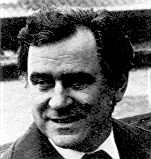 |
| Escalus | John Welsh |
JOHN WELSH began his career at the Gate Theatre in Dublin. In 1956 he was a founder member of the English Stage Company under George Devine at the Royal Court Theatre, where in 1956 he played in Cards of Identity, The Crucible and created the part of Colonel Redfern in Look Back in Anger. He joined the RSC in 1963 to play Gloucester in The Wars of the Roses and Aegeon in The Comedy of Errors. Also with the RSC he played in Edward Albee's A Delicate Balance and George Bernard Shaw's Too True To Be Good. He has appeared in many films and has appeared frequently on television, notably as Uncle James in The Forsythe Saga, Sir Pitt Crawley in Vanity Fair, The Duke of Wellington in Edward VII and the butler Merriman in The Duchess of Duke Street. His most recent film appearance was in The Thirty-Nine Steps. With Patrick Magee he has recorded Patrick Kavanagh At The King's Head a long-playing record of the poet's work. |
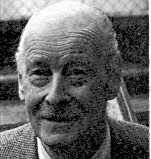 |
| Angelo | Patrick Drury |
PATRICK DRURY read English at University College Dublin before going to RADA. He has worked in Regional Theatre at Coventry, Harrogate, Birmingham and Oxford, where he played Charles in Dear Daddy in which he made his London debut when it transferred to the Ambassadors Theatre. Other London appearances have included David in Events in An Upper Room at the ICA Theatre, Michael in Flying Blind at the Royal Court Theatre and two productions at the Almost Free Theatre. TV appearances include I Claudius and Disraeli. More recently he played Orlando in As You Like It, Constantin in The Seagull and Tomazo in The Changeling at the Bristol Old Vic and has just been seen at the Kings Head in James Joyce & Co. |
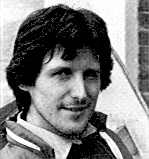 |
| Lucio | Hugh Thomas |
HUGH THOMAS played Denson in If before going to Oxford University to read English. Whilst at Oxford he played Hamlet in Jonathan Miller's production for the Oxford and Cambridge Shakespeare Company. His work in Regional Theatre includes seasons at the Oxford Playhouse, where he played Jacques in As You Like It. At the National Theatre, he played Basile in The Marriage of Figaro and Joe in Trevor Griffith's The Party. Appearances on television have included Head Master, Three Men In A Boat, Stronger Than The Sun and the series Raven, as well as programmes in his native language, Welsh. A Director as well as an actor, he has been Assistant Director at the Royal Court Theatre and a Staff Director at the National Theatre. His productions include Stephen Poliakoff's City Sugar at the Bush Theatre and later at the Comedy Theatre, Disaster at the ICA and more recently Loot for the Bristol Old Vic. |
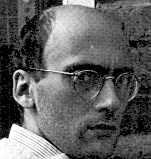 |
| Gentlemen | Robert Hamilton |
ROBERT HAMILTON trained at the E15 Acting School and has worked in Regional Theatre at Lincoln. Sheffield, Watford, Liverpool and Edinburgh. With the 7:84 Company he appeared in Plugged In which was also televised by the BBC. His London appearances include Live Like Pigs and Crete and Sergeant Pepper at the Royal Court Theatre, and All Along the Watchtowers at the ICA. He spent two years with Joint Stock Theatre Group appearing in Light Shining In Buckinghamshire, Fanshen, A Mad World My Masters and Epsom Downs. His numerous television appearances include Birthday, Stronger than the Sun and Roses of Eyam. He has recently finished work on the feature film of Porridge. |
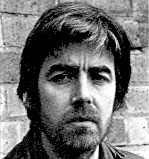 |
| Paul Kelly |
PAUL KELLY trained at the Central School of Speech and Drama and subsequently worked at Manchester, Worthing, Newcastle, Nottingham, Watford and Derby, where he played Horatio in Hamlet. At the Royal Court Theatre he played Matthews in David Storey's Life Class which transferred to the Duke of York's Theatre, and at the Young Vic, Rosencrantz in Rosencrantz and Guildenstern Are Dead. His television appearances have included Z Cars, The Protectors, The Ballad of Ben Baggott, and Sculley's New Year's Eve. His most recent work in the theatre was as Tom in David Storey's Sisters at the Royal Exchange Theatre, Manchester. |
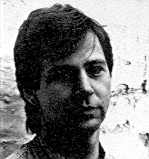 |
|
| Mistress Overdone | Maria Charles |
MARIA CHARLES trained at RADA and worked extensively in Regional Theatres. In London she created the part of Dulcie in The Boyfriend at the Wyndham's Theatre and was subsequently in Divorce Me Darling playing the same character twenty years on. She played in They Don't Grow On Trees at the Prince of Wales Theatre, in Three Months Gone at the Duchess Theatre, and was recently seen as Dolly in The Matchmaker at Her Majesty's Theatre. Many appearances on television include the series Secret Army, Agony, Seven Faces of Woman, She, Crown Court and Thomas and Sarah and she will be remembered as the mother in the award winning play The Bar Mitzvah Boy. She played Sarah Pocket in the film of Great Expectations and appeared in The Return of the Pink Panther. She has just completed work on the film Cuba. |
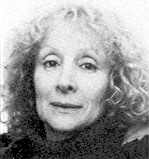 |
| Pompey | Michael Elphick |
MICHAEL ELPHICK was a theatre electrician at Chichester' before he trained at the Central School of Speech and Drama and has worked extensively in Regional Theatre. He toured England and America in Tony Richardson's production of Hamlet and the Far East in Macbeth. At the Royal Court and Globe Theatres he created the part of Trevor in The Changing Room. Last year at Riverside Studios he was seen as Lopakhin in Peter Gill's production of The Cherry Orchard. His numerous appearances on television have included series such as Holding On, The Nearly Man and This Year, Next Year, and many plays, the most recent of which was Dennis Potter's Blue Remembered Hills. His films include Odd Job Man, The Great Train Robbery, Black Island and The Who's Quadrophenia. He has just been seen at the Royal Court Theatre as Mr Townly in Stuart Burge's revival of The London Cuckolds by Edward Ravenscroft. |
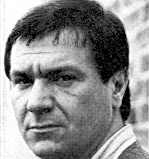 |
| Caudio | Paul Jones |
PAUL JONES is well known as a founder member of Manfred Mann with whom he wrote and performed many hit songs. His interest in music developed while he was at Jesus College, Oxford. He continues his singing and song writing careers at the same time as acting, having recently created the role of Peron on the record of Evita, and co-written and performed the music for the film Intimate Reflections. His songs have been recorded by people as diverse as Eric Clapton and Helen Shapiro. He has worked in Regional Theatres at Coventry, Chichester and Nottingham where he played Cassio in Othello. He played Hamlet at Ludlow and Romeo on a Young Vic Tour. As well as episodes of many popular TV series and appearances on Juke Box Jury, Ready Steady Go and Top of the Pops, his television work has included many plays - notably A Matter of Taste directed by Peter Gill. He starred in Peter Watkins' film Privilege and in the London productions of Conduct Unbecoming at the Queens Theatre with which he subsequently transferred to Broadway, Pippin at Her Majesty's Theatre, Drake's Dream at the Shaftsbury Theatre and Joseph and The Amazing Technicolour Dream Coat at the Westminster Theatre. |
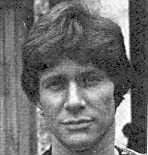 |
| Provost | John Bailey |
JOHN BAILEY won an LCC Scholarship to RADA, and subsequently worked extensively in Repertory. He first appeared in London with Edith Evans and Owen Nares in Robert's Wife, and was rehearsing Present Laughter with Noel Coward when the war intervened. After the war he returned to the theatre, notably at the Bristol Old Vic. He was for some time under contract to the Associated British Picture Corporation. He has made numerous television appearances in plays and such series as The Troubleshooters, Callan, The Avengers, Dixon of Dock Green and played Aubrey Green in The Forsyte Saga. He recently appeared in Henry VIII on BBC TV. He joined the Prospect Theatre Company to play Don Armado in Love's Labours Lost and Gloucester in King Lear. His films include Running Scared, The Fourteen and Holocaust. He has just returned from playing Dorn in The Seagull at the Bristol Old Vic. |
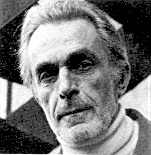 |
| Friar Peter | Matthew Guinness |
MATHEW GUINNESS made his debut at the Comedie de St Etienne in France, before training at the London Academy of Music and Dramatic Art. He has worked extensively in Regional Theatre at Edinburgh, Nottingham Leeds and Birmingham. In London, he has appeared at the Royal Court Theatre in Edward Bond's Lear and as Clegg in David Storey's The Changing Room which transferred to the Globe Theatre. He created the part of Hicks in Howard Brenton's Weapons of Happiness at the National Theatre and for the RSC he has played Ross in Macbeth, Charles in Babies Grow Old and Gower in Henry V. In the recent Prospect Theatre Company season at the Old Vic Theatre in London he played Bob Acres in The Rivals and The Fool in King Lear. His television appearances include Roads to Freedom, The Main Chance and Van Der Valk. He played Kilgas in the film One Day In the Life of Ivan Denisovitch and his other films include The Virgin Soldiers, Luther and The Duellists. Most recently he was the Dauphin in St Joan at the Birmingham Repertory Theatre. |
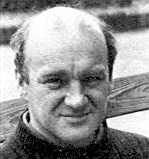 |
| Isabella | Helen Mirren |
HELEN MIRREN trained as a teacher of Drama at New College of Speech and Drama, Hampstead. She has been closely associated with the Royal Shakespeare Company, both at Stratford-upon-Avon and the Aldwych over a period of eight years, appearing most notably as Cressida, Julia, Ophelia, Miss Julie, Lady Macbeth and Queen Margaret. She worked with Peter Brook at the International Centre of Theatre Research in Paris and toured with the company in Africa and America. At the Royal Court Theatre. she created the part of Maggie in David Hare's Teeth 'N' Smiles, a part she later played at the Wyndham's Theatre. Also in the West End she played Nina in The Seagull and Ella in Ben Travers' The Bed Before Yesterday for Lindsay Anderson's Lyric Theatre Company. Her numerous performances on television include Miss Julie, The Country Wife and Orinthia in The Apple Cart and most recently Rosalind in As You Like It and in Denis Potters Blue Remembered Hills. She co-starred in the films Age of Consent and Caligula and has just finished work on SOS Titanic and Hussy. |
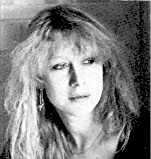 |
| Francisca | Susan Broderick |
SUSAN BRODRICK trained at the Central School of Speech and Drama and made her debut in Antonioni's film Blow Up. Her other film appearances include Decline and Fall and Dr Jekyll and Sister Hyde. She has worked in Regional Theatre at Liverpool and Canterbury, and in London at the Fortune Theatre in My Little Boy, My Big Girl. Her television appearances include Nicholas Nickleby, Jane Eyre and School for Scandal. |
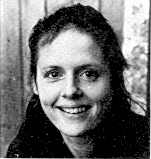 |
| Elbow | Matthew Guinness |
 |
|
| Froth | Stuart Rayner |
STUART RAYNER trained at the E15 Acting School. He has worked in Regional Theatre at Colchester and Worthing. He made his first London appearance in David Storey's Life Class at the Royal Court and subsequently at the Duke of York's Theatre. Also at the Royal Court Theatre he appeared in Parcel Post by Yemi Ajibade and Laughter by Peter Barnes. His television appearances include State of Emergency and Whodunit and he played Speedicut in the film Royal Flash. |
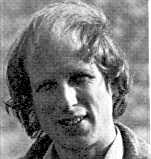 |
| A Justice | Robert Hamilton |
 |
|
| Angelo's Servant | Paul Kelly |
 |
|
| Juliet | Anne Lambert |
ANNE LAMBERT studied Speech and Drama at the Independent Theatre, Sydney. She has worked extensively in films and television in Australia, achieving a notable success as Miranda in the film Picnic At Hanging Rock. She recently came to London from the USA and Measure For Measure marks her debut in Shakespeare, and her second professional theatre appearance. |
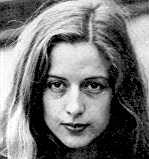 |
| Mariana | Susan Broderick |
SUSAN BRODRICK trained at the Central School of Speech and Drama and made her debut in Antonioni's film Blow Up. Her other film appearances include Decline and Fall and Dr Jekyll and Sister Hyde. She has worked in Regional Theatre at Liverpool and Canterbury. and in London at the Fortune Theatre in My Little Boy, My Big Girl. Her television appearances include Nicholas Nickleby, Jane Eyre and School for Scandal. |
 |
| Boy | Giles Ashton | ||
| William Palmer | |||
| Jarrod Leeds | |||
| Damiano Vukotić | |||
| Abhorson | Robert Putt |
ROBERT PUTT trained at the E15 Acting School. His first professional appearance was at the Theatre Upstairs at the Royal Court Theatre in a play improvised with Mike Leigh. After working in Regional Theatres at Liverpool, Lincoln, Manchester, Nottingham and Sheffield he played at the Shaw Theatre in Ken Campbell's Old King Cole, Mind Your Heads and The Taming of the Shrew. He was in Jeremy Seabrook and Michael O'Neill's Sex And Kinship In A Savage Society at the Royal Court Theatre Upstairs. His I television appearances include Easy Go, The Bar Mitzvah Boy, The Life of Shakespeare, Ready When You Are Mr Magill, The Sweeney and Pennies From Heaven. His films include It Shouldn't Happen To A Vet, The Ruttles and most recently Porridge. |
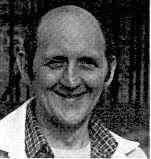 |
| Barndine | Robert Hamilton |
 |
|
| Guards | Robert Hamilton | ||
| Paul Kelly | |||
| Stuart Owen | |||
| Robert Putt | |||
| Stuart Rayner | |||
| Director | Peter Gill |
PETER GILL started in the theatre as an ASM and worked as an actor in repertory, at the Royal Court Theatre and with the Royal Shakespeare Company. He has been closely associated with the Royal Court Theatre, where he was assistant director in 1965 and associate director 1970-72. He is perhaps most celebrated for his pioneering work on the plays of D H Lawrence but he has directed over thirty plays from the modern and classical repertoires in Europe and North America as well as productions of his own plays The Sleepers' Den, Over Gardens Out and Small Change. In 1976 he was appointed Director of Riverside Studios where he has directed recent productions of The Cherry Orchard and The Changeling. |
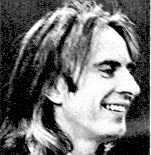 |
| Designer | Alison Chitty |
ALISON CHITTY studied stage design at the Central School of Art and Design. She began her career as Assistant Designer at the Victoria Theatre Stoke-onTrent in 1971 where she became Head of Design in 1974 and was responsible for over thirty productions of classical, documentary and new plays as well as children's entertainments. She has also designed Benjamin Britten's Noyes Fludde for Keele University, the York Mystery Plays at York Festival, Ken Campbell's Old King Cole at the Theatre Royal Stratford East and for BBC TV Fight For Shelton Bar, a documentary which originated at Stoke-on-Trent. In 1977 she was awarded an Arts Council Designers Bursary to survey and report on backstage and production areas of Regional and London Theatres. She has designed the interior reconstruction of a Victorian Pottery Factory for the Gladstone Pottery Museum at Stoke, and was a contributor to the recent exhibition at Riverside Studios of the Society of British Theatre Designers, where her work was selected for exhibition at the Prague Quadrennial 1979. |
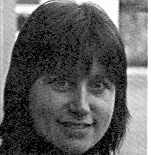 |
| Music | George Fenton |
GEORGE FENTON started his musical career playing with bands and made several records including We Were Happy there with Carl Davis and Ho Hum with the Whistler Group. He has worked widely in the theatre as a composer and musician. He wrote incidental music for Twelfth Night at Stratford, As You Like It at Nottingham and the Riverside productions of The Cherry Orchard and The Changeling His television work includes music for Hitting Town, for the Thames TV series Out and the recent season of Alan Bennett Plays for London Weekend Television, and he wrote the music for the films Private Road and What Became of Jack and Jill. He is now giving most of his time to composing and is currently working on the new BBC TV series Shoestring and the forthcoming film Hussy. |
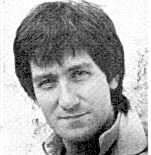 |
| Lighting | Rory Dempster |
RORY DEMPSTER trained as an electrician in the West End and in the 1960s lit rock concerts by, among others, Jimi Hendrix and The Who. At Nottingham Playhouse he designed the lighting for Brassneck, The Churchill Play, Comedians, Touched and The Cherry Orchard. In London he lit The Merry Go Round, Not I and Krapp's Last Tape at the Royal Court Theatre and Yesterday's News, Devil's Island and A Mad World My Masters for the Joint Stock Theatre Group. West End Theatre work includes Sizwe Banzi is Dead, The Island, Entertaining Mr Sloane, Lennie, Teeth 'N' Smiles and City Sugar. He has lit Twelfth Night for the RSC and Weapons of Happiness, The Madras House and Plenty for the National Theatre. Work abroad includes The Rocky Horror Show in Norway and Japan, the ballet Romeo And Juliet in Cologne and the Oedipus plays for the Dubrovnik Festival. Formerly Technical Director of Riverside Studios where he designed the lighting for The Cherry Orchard and The Changeling he is now freelance and has recently designed The Rocky Horror Show at the Comedy Theatre. He is currently working on the design of flexible seating for Riverside Studios. |
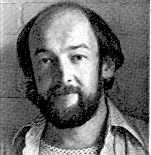 |
| Technical Manager | John Cruickshank | ||
| Stage Manager | David M Harvey | ||
| Deputy Stage Manager | Francesca Greatorex | ||
| Assistant Stage Manager | Stuart Owen | ||
| Production Assistants | John Price | ||
| Simon Curtis | |||
| Casting | Simone Reynolds | ||
| Carpenters | John Leonard | ||
| Stephen Scott | |||
| Chief Electrician | David Richardson | ||
| Assistant Electrician | Richard Johnson | ||
| Sound | Roy Truman | ||
| Wardrobe Supervisor | Doreen Watkinson | ||
| Wardrobe Mistress | Sylvia Kennedy | ||
| Wardrobe Assistant | Stella Watson | ||
| Furniture | Kimpton Walker | ||
| Properties | Stewart Simkins | ||
| Costume Makers | Rosalind Kemp | ||
| David Healy | |||
| Lucy Nye | |||
| Wigs | Janet Archibald | ||
| Dyeing | Penny Hadrill | ||
| Graphics | Pip Paton-Walker | ||
| Christopher Harris | |||
| Production photographs | John Haynes | ||
| Programme text and photographs | Sarah Wedderburn | ||
| Programme and poster printed by | Embassy Press Ltd |